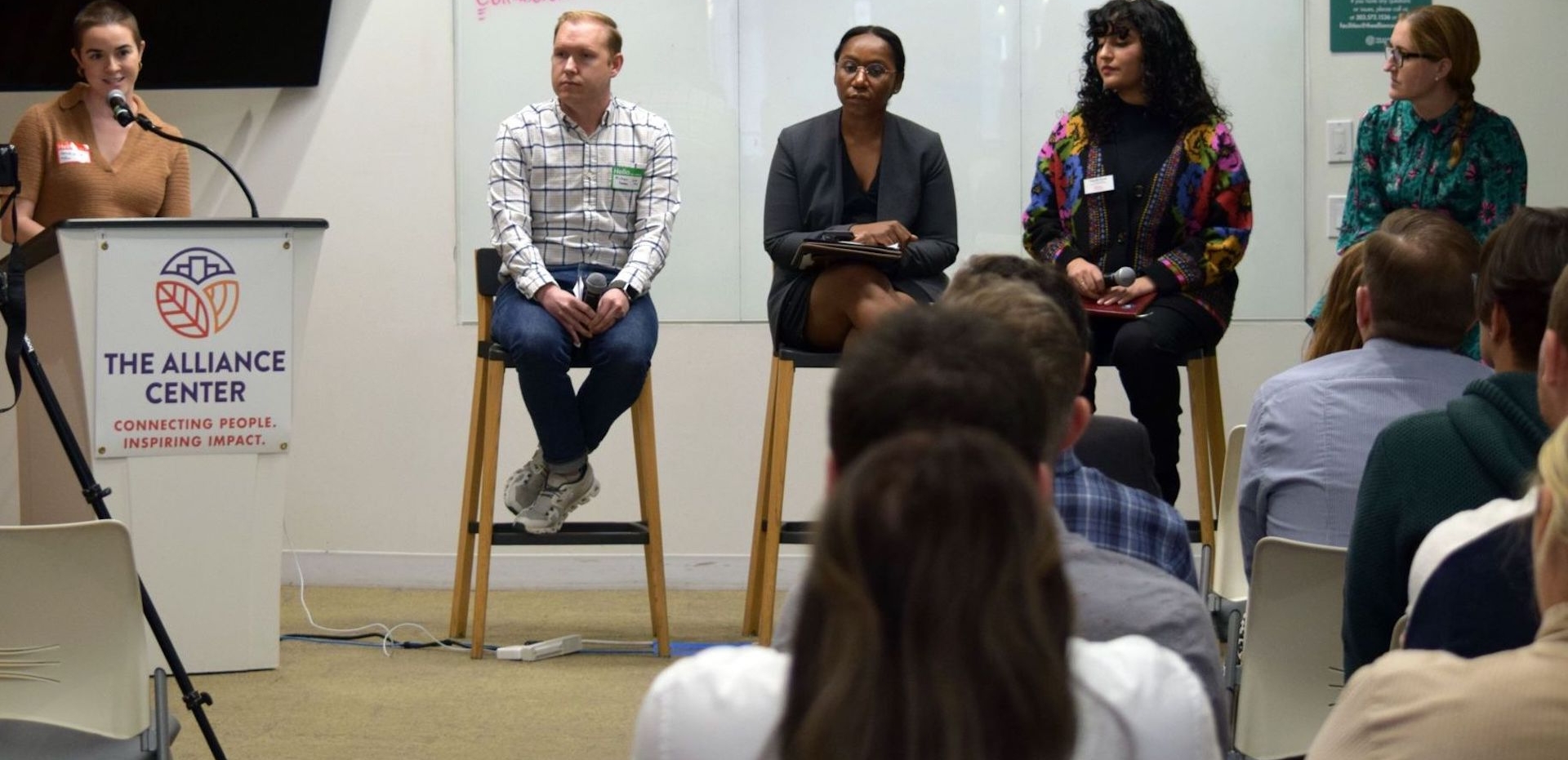How Businesses Can Support Civic Engagement Through Insight, Action, and Connection
October 23, 2024
Highlights from a B Corp Event: Building Collective Action During Elections and Beyond
Policymakers have long given significant weight to the perspectives of business owners, and that voice typically has been beholden to one common denominator: profits. But as business culture changes, so can business influence on policy and elections.
As more businesses, including Certified B Corporations, seek to create a profit and positive impact for their communities, workers, consumers, and the environment, the traditional narrative about what motivates them is transforming. The approaching U.S. election reinforces the importance that businesses speak up for their communities, values, and future.
In a panel discussion presented by the B Proud network and B Local Colorado, experts on LGBTQ+ rights, reproductive healthcare, economic justice, and climate change discussed how elections shape our collective future. They also provided insight on how and why B Corps and other impact-minded businesses can engage in shaping future policies by supporting voting, establishing policies to support workers, and staying connected with local issues. The B Corp community event, which included in-person and online attendees, featured:
- Yolanda Richard, Executive Director of Good Business Colorado
- Arli Christian, Senior Policy Counsel in the ACLU’s National Political Advocacy Department
- Erin Sprague, CEO of the climate advocacy organization Protect Our Winters
- Claudia Perez, Public Affairs Manager at Planned Parenthood of the Rocky Mountains
- Michael Dabbs, Senior Director of Impact for The Gill Foundation
Grace Mausser, Senior Policy Manager at B Lab U.S. & Canada, said because policymakers value the business voice, their perspective can have a disproportionate impact. B Corps and other companies that operate with values at the forefront can tap into this reality and help shape policy for long-term positive impact. In addition to sharing and modeling the benefits of a stakeholder-minded economy, B Corp leaders can advocate for policies that support and demand that businesses act as a force for good for all people.
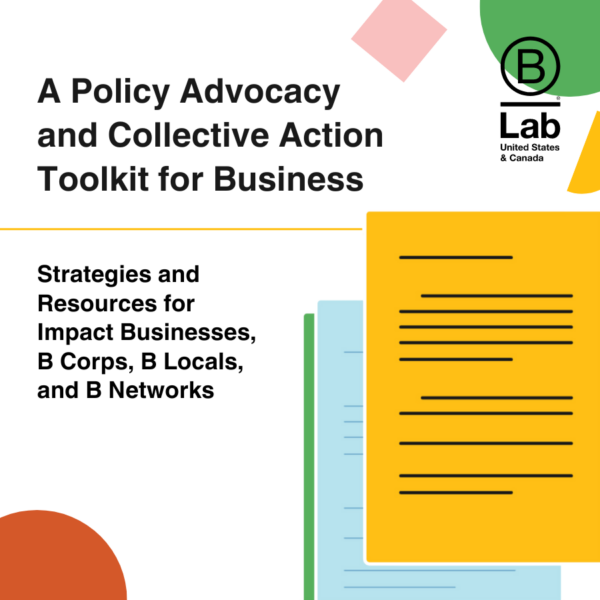
A Policy Advocacy and Collective Action Toolkit for Business
B Lab U.S. & Canada developed this downloadable guide to support businesses in their advocacy and collective action work. Find resources, examples, and other action-oriented information.
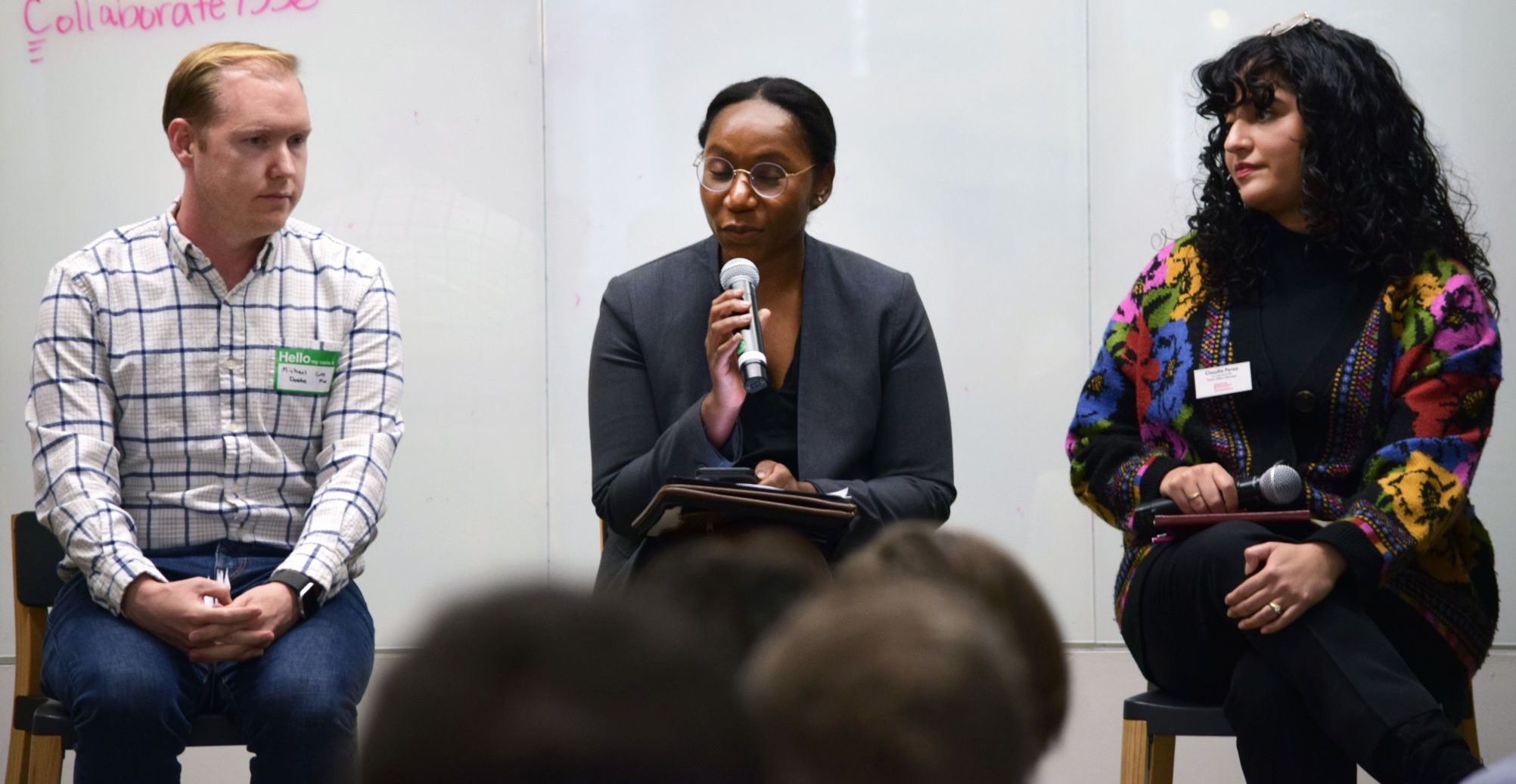
From left: Michael Dabbs of The Gill Foundation, Yolanda Richard of Good Business Colorado, and Claudia Perez of Planned Parenthood of the Rocky Mountains speak at a B Corp community event on civic engagement. (Photos courtesy B Local Colorado)
Bringing a New Business Perspective to Policy Advocacy
At Good Business Colorado, Richard oversees the grassroots organization of values-driven employers and entrepreneurs. She said that especially at state capitols, both in Colorado and across the country, policymakers have held a perspective that businesses’ solitary goal is to increase profit margins and cut costs.
“For many, many years, this has been the driving voice that politicians or legislators have heard on behalf of the business community,” Richard said. “But we’ve all seen, even within our own businesses, an increasing consciousness around how climate, sustainability, and equity impact our communities, our workforce, and our quality of life. We’ve seen the intersection between racial and economic justice issues on our bottom lines.”
Richard said rather than just centering profit, businesses are integrating those conversations into how they operate. Especially during this presidential election season, she said it’s essential that values-aligned businesses engage in public policy and advocacy to combat the traditional perspective and reshape the conversation.
Christian of the ACLU noted legislation that threatens individuals’ civil rights or civil liberties has passed or been proposed both in Colorado and across the country. The proposals range from blocking the bodily autonomy of pregnant or transgender people, to banning books, to failing to take action to protect the environment and other natural resources.
The ACLU works across all those issue areas as part of its mission to protect the rights and freedoms of all individuals. “What democracy means to me is that when we see things happening in our country, in our society, that go against our values, we have to speak up,” Christian said. “We have to take action.”

A Guide to Government Affairs & Collective Action in Practice
This guide from B Lab U.S. & Canada provides examples and resources to support collective advocacy efforts in the B Corp community.
Reshaping the Conversation About What Businesses Want
So what can businesses do around civic engagement and policy advocacy? Panelists discussed actions such as supporting voting, getting involved in local issues, and ensuring their internal policies fully support their employees and their families.
Sprague of Protect our Winters (POW) said one of the simplest ways businesses can support civic engagement within their own company is by encouraging voting. That means giving employees time to go vote and otherwise carving out time for civic engagement. Giving the example of POW’s Triple Your Vote campaign, Sprague said that showing and speaking to the importance of voting has an impact. The campaign is built on the concept that each person who reminds three friends to head to the polls can boost voter participation.
“There is psychological research that people often change their behavior based on what other people in their immediate care network think or suggest,” Sprague said. “Encouraging other people to vote has a really important demonstrated impact, and companies of any size are in a unique position to be able to do that and demonstrate that value.”
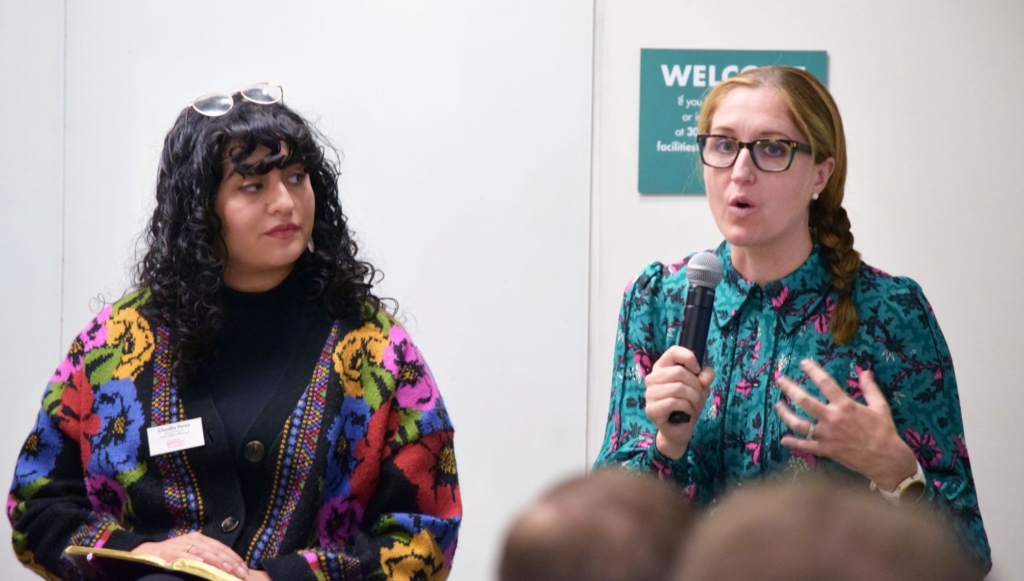
Claudia Perez, left, of Planned Parenthood of the Rocky Mountains, and Erin Sprague of Protect Our Winters speak at a recent B Corp community event on civic engagement. (Photos courtesy B Local Colorado)
Perez of Planned Parenthood of the Rocky Mountains said the biggest thing for businesses to remember is that they need to use their influence, both at the political level and by leveraging the trust small businesses have within their communities. Perez said that means getting involved with what’s going on in your community, and investing time, attention, and energy to ensure a society that cares for the people who are in it.
“I think the question to ponder is: Who benefits when you leave power on the table?” Perez said. “Who benefits when you are silent and you step out of this? It’s important to really think about how to leverage the power that you hold and the trust that you hold in the communities you serve and belong to.”
Dabbs of The Gill Foundation noted that businesses’ internal policies are another opportunity to have a direct and tangible impact on employees and their families. That includes having a non-discrimination policy that’s compliant with best practices (in addition to local and state laws). For instance, he said The Gill Foundation requires its grantees to have non-discrimination policies and protections that are inclusive of sexual orientation and gender identity.
“I think that we all agree that how you treat your employees, how you treat your customer base, is vital to your business’s health,” Dabbs said. “Especially for communities under attack in this moment, business and employee protections can be the only firewall that they have to get resources that they need to travel or get health care. So just recognizing that beyond advocacy, the policies of your business matter a lot, especially to your employees.”
Richard said we’re in a moment of business transformation. Many more business owners are creating companies to make a specific, positive impact on people’s lives and the environment. “We’re in this interesting time where we really have the power to begin to reframe the conversation and reframe what politicians believe we want as business owners,” Richard said. “It’s truly powerful. So if you believe that that’s true, if you can log into that, there is a place for you at the state’s capitol. There is a place for you in these conversations.”
Watch the full conversation:
-

-

-

-
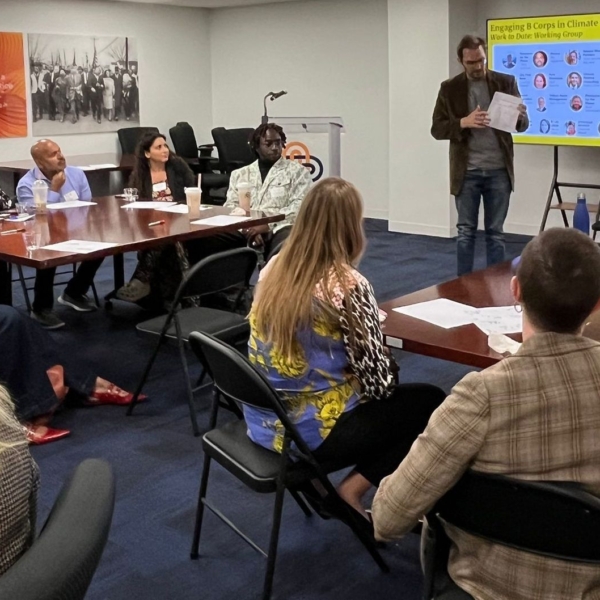
Climate Action
Advancing Climate Justice Through Business Finance and Community Collaboration
Read More
Sign Up for our B The Change Newsletter
Read stories on the B Corp Movement and people using business as a force for good. The B The Change Newsletter is sent weekly.
